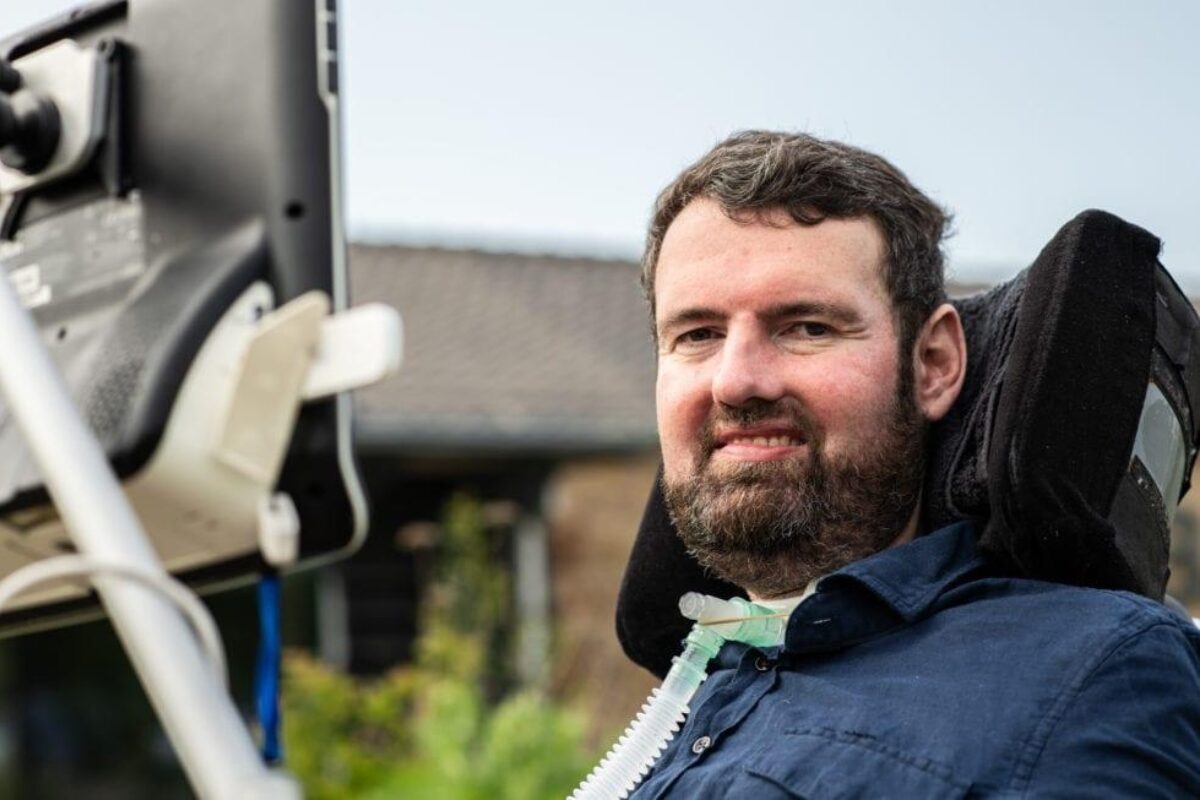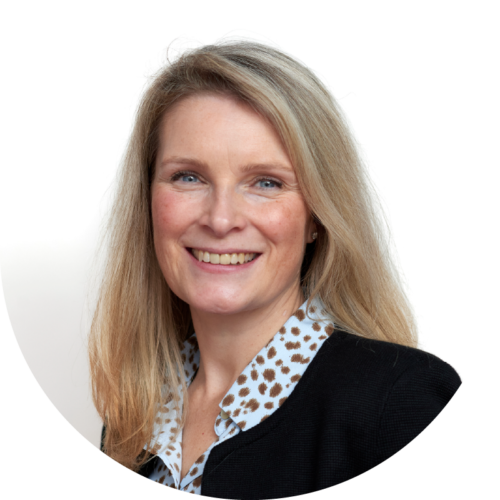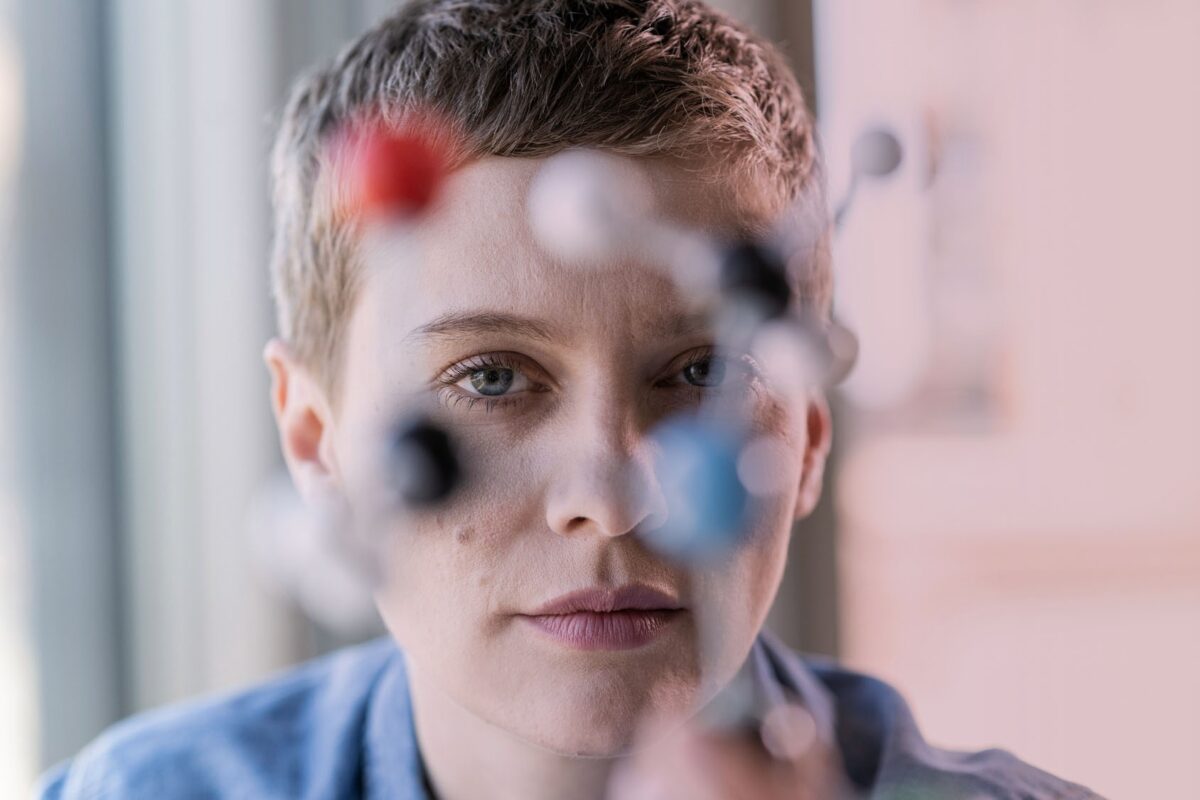

A collaborative research project between world-leading researchers in healthcare and computer sciences at the University of Edinburgh has led to the launch of spinout company SpeakUnique, which provides a state-of-the-art synthetic voice personalisation service for communication aid users.
Inspired by personal experience
Euan MacDonald, founder of the Euan MacDonald Centre for Motor Neurone Disease Research at the University of Edinburgh, lost his own voice due to the effects of MND. He came up with the idea for SpeakUnique because he didn’t want his children to remember him by a voice that wasn’t his own, but found that communication aids only provided generic, ‘computerised’ voices. He knew that his dissatisfaction would be shared by many people who had lost or were at risk of losing their voices to medical conditions such as cerebral palsy, stroke and throat cancer, and he wanted to fulfil this unmet need. Euan’s concept became a collaborative research project between the Euan Macdonald Centre and the University of Edinburgh Centre for Speech Technology Research, led by Alice Smith and based at the Anne Rowling Regenerative Neurology Clinic. The interdisciplinary nature of the project meant the team was able to access world-class facilities across the School of Medicine and the School of Informatics, and draw on the expertise of specialists such as globally recognised neurologist Professor Siddharthan Chandran, who now acts as an Adviser to SpeakUnique.
The research project revealed that personalised voices help people retain their dignity, identity and a sense of control in the face of devastating and incurable diseases, as well as being meaningful to their loved ones. The team also discovered that high quality and rapid recordings could be undertaken in people’s own homes thus removing the need for travel to a clinic, which many users with mobility issues would find difficult.
Spinning out
The team developed technology that can create a synthetic version of an individual’s voice from less than an hour’s recording, or repair voices that are becoming unclear, for integration into the user’s communication aid. This allows users to “speak” in a voice that is identifiably their own. For people who have already lost the power of speech, SpeakUnique can draw on its bank of over 1,600 voices to design a bespoke voice based on characteristics such as age, gender and regional accent.
In 2019 SpeakUnique was formed as a University spinout so that the team’s life-enhancing technology could be offered as a service. Edinburgh Innovations (EI), helped SpeakUnique to secure ICURe (Innovation to Commercialisation of University Research) and Innovate UK funding, and supported Smith’s application to the Royal Society of Edinburgh for a prestigious Enterprise Fellowship in 2019, which was then hosted by EI. The University (through EI) continues to support SpeakUnique as a shareholder. For more information about how the University manages its shareholdings in early-stage companies, read about OCC Holdings.
In their own words
SpeakUnique launched its first products in June 2020 and the company has swiftly established an international reputation. Its services are currently available to English-speaking customers worldwide, providing an expanding range of accents including Californian, Danish, Welsh and Zimbabwean. The company aims to move into supplying voices in other languages, so that it can provide a truly global service to communication aid users.
We have been delighted to support this venture. To be able to formally launch is very exciting, as people with MND, amongst others, will be able to bank their voices and receive the best quality synthesised voice in return. I know the benefits first-hand as someone who uses my personalised voice through my eye gaze device every day.
This is a great example of collaboration between the University and private individuals.
Euan MacDonald, founder of the Euan MacDonald Centre for MND research.

We make it easy to access the University of Edinburgh’s multi-disciplinary expertise by matching your needs to the latest research, new technologies and world-class facilities.